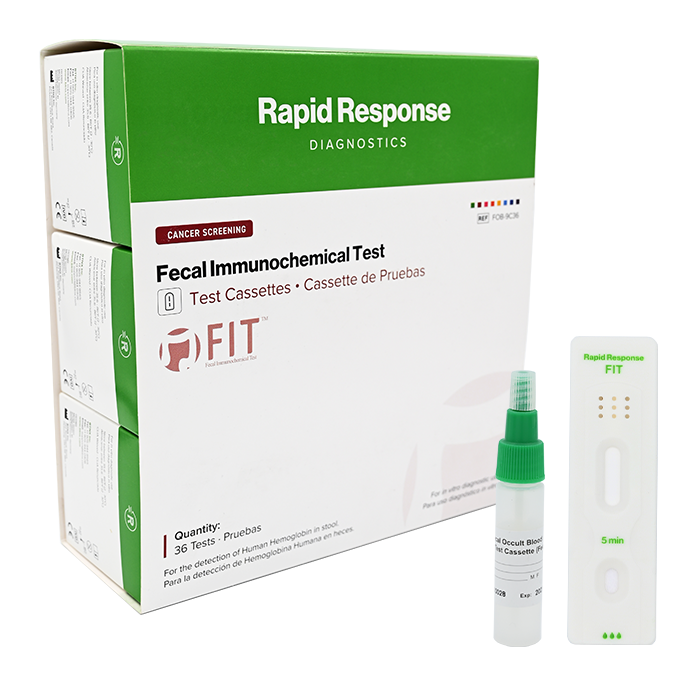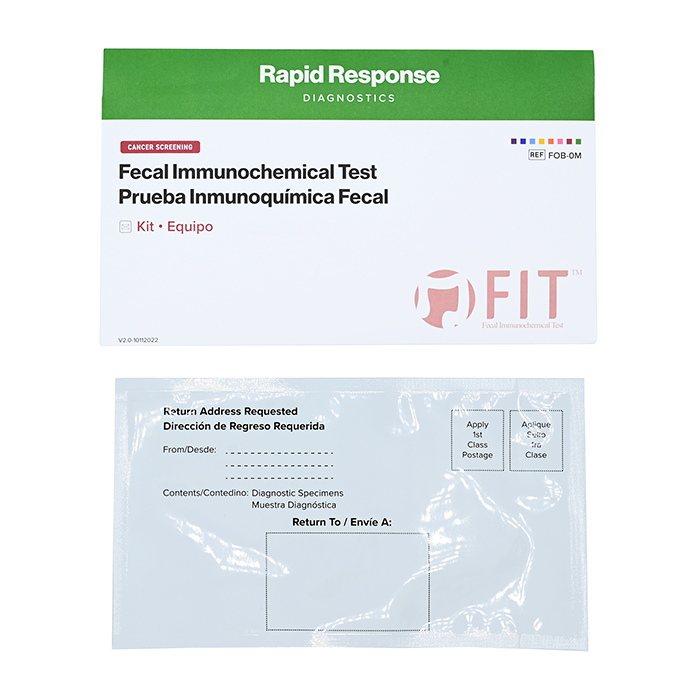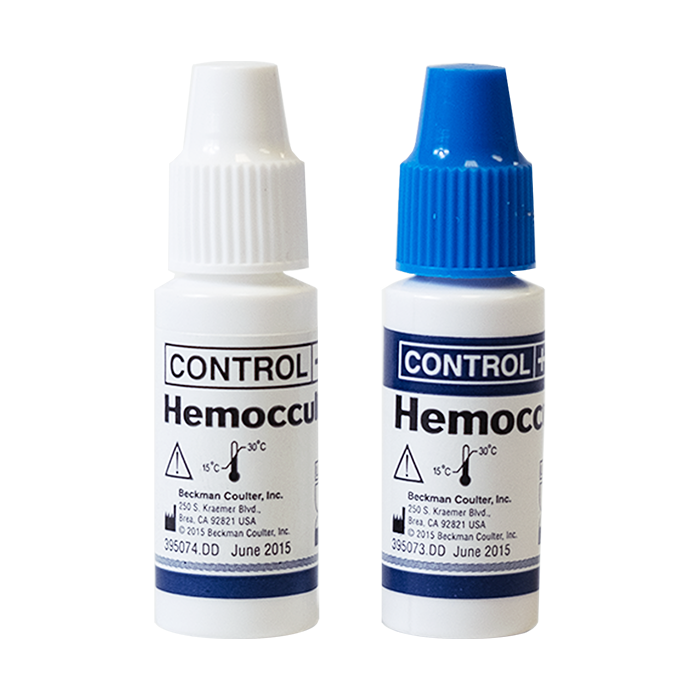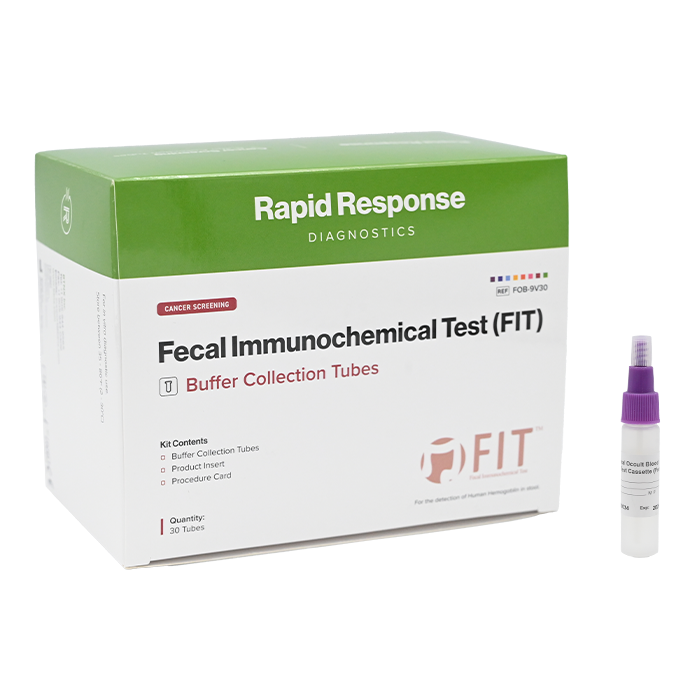
The Rapid Response® Fecal Immunochemical Test (FIT) is an immunochromatographic assay intended for the determination of human hemoglobin in feces by professional laboratories or physician’s offices. It is useful to determine gastrointestinal bleeding found in a number of gastrointestinal disorders such as colorectal carcinoma, colon polyps, diverticulitis and ulcerative colitis.

Format: Cassette
Kit Size: 2 Tests/Kit

Format: Cassette
Kit Size: 36 Tests / Kit

Format: Card
Kit Size: 50 Mailers / Kit

Kit Size: 1 Pair / Kit

Kit Size: 30 Tubes / Kit
A Simple Step Toward Better Health
Incorporating efficient tools for early detection into clinical workflows is a growing priority. Fecal immunochemical test kits offer healthcare providers a practical, noninvasive method for detecting occult blood in stool, an early indicator of potential colorectal conditions. These tests provide a streamlined alternative to more complex procedures, improving accessibility without compromising clinical relevance.
The FIT method is designed for physicians’ offices and diagnostic laboratories. It supports regular colorectal cancer screening protocols with minimal disruption. Results are typically obtained quickly, enabling timely clinical decisions and follow-up when necessary.
Clinicians seeking to enhance preventive care strategies will find that fecal immunochemical test kits allow for broader screening outreach, higher patient compliance, and greater operational efficiency.
Understanding the FIT Method in Clinical Practice
A clear understanding of what is fit test for colon cancer screening helps professionals assess its role in modern preventive care. This test is designed to detect trace amounts of human hemoglobin in stool samples, often present before visible symptoms appear. By identifying signs of bleeding associated with polyps or malignancies, FIT plays a critical role in early intervention.
The test requires no dietary or medication restrictions and is simpler to administer than a colonoscopy, particularly for patients at average risk. The procedure’s convenience and ease of support increased patient participation, particularly when included as part of a routine annual exam.
For providers considering what is fit test for colon cancer screening, the value lies in its clinical efficiency, accessibility, and proven contribution to early detection strategies.
The Role of Rapid Testing in Clinical Efficiency
Test format and delivery flexibility are essential when integrating colorectal screening into a clinical environment. A fit screening kit can accommodate different operational models, from individual office testing to bulk mail-in screening campaigns. Our assortment includes cassette-based kits, mailers, and quality control solutions to support various use cases.
Each format is developed to meet medical practices’ logistical and procedural needs. Practices requiring onsite rapid results may benefit from the simplicity of the cassette format, while population health initiatives may find mailers more effective in reaching patients remotely.
Choosing the right fit screening kit ensures efficient implementation, improved patient engagement, and better alignment with organizational goals for preventive healthcare delivery.
The Role of Rapid Testing in Patient Care
Timely information is critical in healthcare decision-making. A colon cancer rapid test supports this by delivering prompt, actionable results without the complexity of invasive diagnostics. In busy clinical settings, such tests allow professionals to quickly evaluate patients and determine appropriate next steps.
For practices aiming to reduce diagnostic delays and improve early intervention, a colon cancer rapid test offers a streamlined approach. It fits well within routine workflows and encourages patients to participate in preventive screening with minimal resistance or preparation.
This efficiency improves patient compliance and reduces administrative burden, creating a more responsive and productive clinical environment.
Supporting Patient Engagement Through Accessible Screening
Offering accessible screening tools is an effective way to engage patients in proactive health management. With the availability of fit screening kit options, clinicians can expand their preventive care programs and provide patients with a simplified path to early detection.
Patients are more likely to participate in screening programs when they understand the ease and reliability of the process. By utilizing fecal immunochemical test kits, practices empower individuals to take the first step in monitoring their colorectal health without the barriers often associated with more invasive methods.
Supporting informed decision-making = improved patient outcomes and better clinical performance. These screening solutions contribute to a healthcare model prioritizing prevention, efficiency, and informed care.
